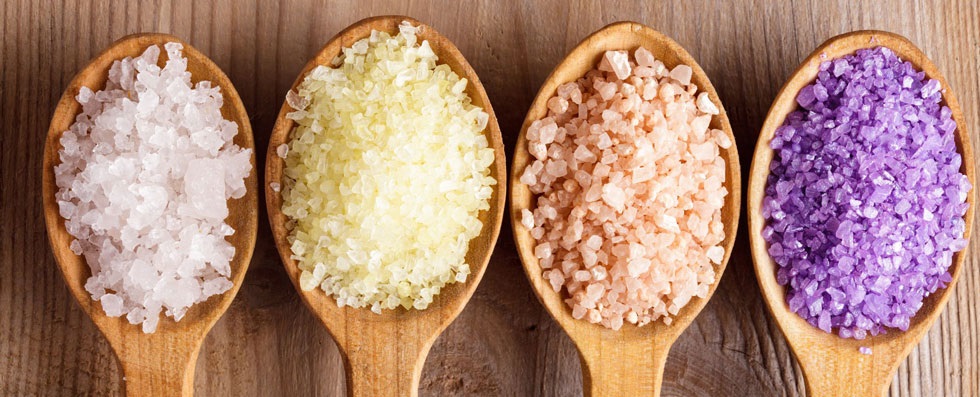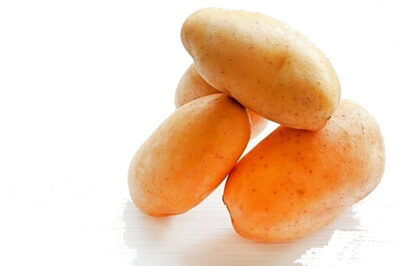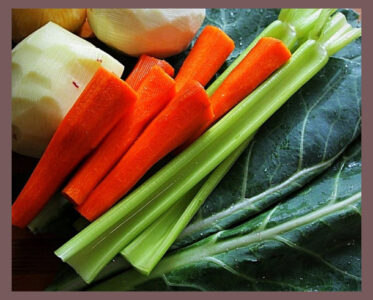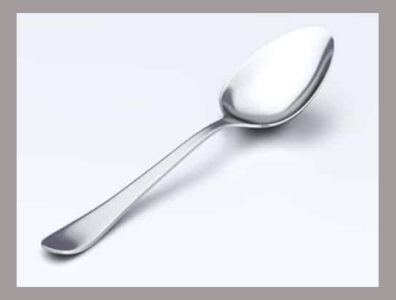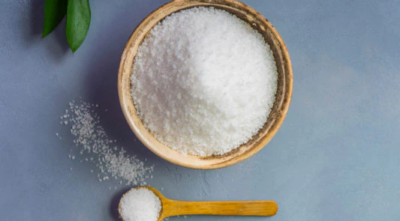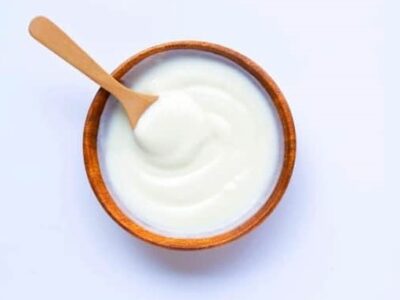the fastest way to remove the saltiness of food:
Cooking food also has its own tricks, and the amount of ingredients used must be measured to not offend people’s tastes.
Most of the foods we cook are categorized into three parts:
- Passion
- Meles
- sweet
All three of these flavors depend on the amount of spice, salt, pepper, and sugar used in food.
Salting food happens with a lot of salt, especially when we have guests, and things get more and more stressed It’s disgusting, and This condition may also occur in the case of skilled cooks, but this issue is nothing to worry about.
To buy useful salts such as Persian blue salt, visit our site.
You know that salting means that too much salt has been used in food and has made it a little harder to eat, but you should know that we can solve this problem in many ways. We’re going to have a pass on those tricks..
Serious side effects of salty and salty foods
We want to start by talking about the importance and role of salt in the body. As you know, eating too much salt can cause serious problems and lead to high blood pressure and more chances of heart attacks and strokes.
Salt is important for food metabolism, muscle function, and nerve signals, but on the other hand, it needs to be consumed wisely and in moderation. The World Health Organization recommends that adults should eat no more than 5 grams of salt a day. But in our country, Iran, we eat two to three times that amount, especially since fast food and junk food have become very popular among the people.
Osteoporosis, heart attacks, asthma, stomach cancer, and high blood pressure are some of the issues that high salt intake can cause. Many people, besides the drawbacks of eating too much salt, do not know how to balance the saltiness of their food, and when they cook, they will try anything to fix this problem so that their food will taste good. This useful article has given you some tips to adjust the saltiness of your food by using them.
Read more: Benefits of Pink Himalayan salt and how to use it
How to get rid of saltiness in food and drink water
Salt, that culinary transformer, can enrich flavors, improve textures, and deepen our dishes. But sometimes, it can be too much, leaving our taste buds craving for a softer touch. Don’t worry, there are ways to calm the salty monster and bring harmony to your culinary creations.
For Food:
- Water and Acid: Dilution is a proven method for lowering saltiness. Add a splash of water or an acidic ingredient like lemon juice or vinegar to your dish. The water weakens the salt, while the acid brightens and balances the flavors.
- Starchy Additions: Starchy ingredients like potatoes, rice, or pasta can soak up excess salt, effectively softening its strength. Add these ingredients to your dish and let them cook, allowing them to absorb the salty flavor.
- Flavorful Contrasts: Balance the saltiness with contrasting flavors. Sweetness from honey or maple syrup can calm the salt, while bitterness from cocoa powder or coffee can provide a refreshing balance.
For Beverages:
- Ice: Ice cubes act as salt-removing filters, effectively desalting your drink. Drop a few ice cubes into your glass and let them melt, allowing the water to weaken the saltiness.
- Vegetables: Add a few slices of cucumber, celery, or bell pepper to your drink. These crispy veggies not only improve the visual appeal but also remove excess salt, leaving your beverage nicely balanced.
- Herbs and Spices: Infuse your drink with fresh herbs like mint or basil, or add a pinch of spices like ginger or turmeric. These fragrant additions can hide the saltiness and add new layers of flavor.
Remember, moderation is key. While salt is important for taste and nutrition, too much of it can cause health problems. Use these techniques sparingly, enjoying the flavors without overwhelming your palate.
Reducing food saltiness with sugar
For this method, take a spoonful of sugar and place it in your food pot with the sugar on it. The spoon should prevent the sugar from melting, and after a few minutes, you can take the spoon and sugar out of the food.
Reducing food saltiness with potato
First, peel a potato, cut it in half, and put it in the simmering food. This way, the extra salt of the food will be soaked up by the potatoes, and after the food is cooked, you can easily take the potatoes out from the pot. If you don’t like the taste of potato in your food, you can also use stale bread.
Reducing food saltiness with fruit
For some foods, like vegetables or meat, you can use fruit to lower the saltiness of the food. A few slices of pineapple or apples are a good option to mask the salty flavor of food.
Reducing food saltiness with water
If the food you cook is like a watery stew, you can add some water to ease its saltiness. But you should remember that if you let the water you added boil and evaporate, your effort will be wasted. If you don’t want your food to be too watery, you can pour out some of the salt water and replace it with fresh water.
Read more: Persian blue salt vs Himalayan pink salt
Reducing food saltiness by adding more food
If you have some extra ingredients, you can add them to the food. This is especially helpful if you have carrots or potatoes in the food, as they can absorb a lot of salt. For foods like soup or pasta, you can use cheese or cream to balance the saltiness and make them more delicious.
Removing food salinity by raising food temperature
When the food is cold, it tastes more salty, so when your food is salty, it’s best to serve the food at high temperatures, in fact, it can be said that the truth escapes.
Using sponges to relieve food salinity
When you have no way to relieve food salinity, you can buy a sanitary sponge from the pharmacy and put it in the food to simmer with it for 10 minutes and get salt from the food..
Removing food salinity with silver spoon
Another interesting method that you have not tried at all is to use silver spoons, so that by using silver spoon while cooking food, you can reduce its salinity..
Removing food salinity by washing vegetables
In some foods, such as cocoa, where vegetables are used, you can prevent the salting of the food by washing the vegetables, so if your food becomes salty after you have added salt, you can get potatoes, Green beans Or vegetables and… Rinse again to reduce the salinity of your food.
Add sugar or acidic substances
To reduce the salty taste of food, you can use acidic substances like citrus extract and tomatoes. Use vinegar and pickles,.
Add Honey Or sugar
In order to have a great impact on reducing the salinity of your food, you can use a mixture of both them acidic and sugary ingredients.
Using coarse-grain salt
It is better to use coarse grain salt so that your food is not salted because ordinary salts are poured into the food with a little bit of salt moving, causing saltiness.
Add a salt staircase to prevent food salinity
Add salt to the food in a few steps to make it known. Check the salinity and low salt at the end before you pull the food.
Keep an eye on steaming water
Watery foods such as ashes and stews lose some of the water you added at first, so it’s best to add salt to them in the last stages.
Removing food salinity using cream
Once the vegetables you have steamed are salted, you can serve them with some cream, or you can put your vegetables in a mixture of boiling water and cream to reduce the salt a little, but in this case, the calories of your food will go up a little.
There’s an old saying that refers to better prevention than treatment, so instead of finding a solution to relieve food salinity, it’s better not to let our food get salty using these cooking recommendations.
Read more: What salt is good for the thyroid?
Ways to prevent food salinity
- Never stop at the time of adding salt on top of the mess.
- Before you use salt, be sure to check the salt to be firm because it may open in the salt and pour a lot of salt in the food.
- When preparing food, pay attention to the ingredients you use in foods so that you don’t use too much sodium or reduce the amount of salt. (Ready-made soups and creamy soups are among these products.)
- To avoid salting your food, cautiously add salt to the food.
- It is better to taste the food many times to get the taste of saltiness and saltiness. Of course, do not do so with the tip of your tongue because this part of the language has little sensitivity.
- So, to taste the food, it’s best to use your entire tongue so that you cool a spoonful of food, then put it into your mouth.
FAQs:
Q: Why is my food too salty?
A: Your food may be too salty because you added too much salt, used a salty ingredient, or cooked with salted water or broth.
Q: How can I fix salty food?
A: You can fix salty food by diluting it with water or an acidic ingredient, adding starchy or sweet ingredients, or balancing it with contrasting flavors.
Q: What are some examples of ingredients that can reduce saltiness?
A: Some examples of ingredients that can reduce saltiness are lemon juice, vinegar, honey, maple syrup, potatoes, rice, pasta, cheese, cream, cucumber, celery, bell pepper, mint, basil, ginger, and turmeric.
Q: How can I prevent my food from becoming too salty?
A: You can prevent your food from becoming too salty by measuring the salt carefully, tasting the food as you cook, using low-sodium or unsalted ingredients, and seasoning your food at the end of cooking.
Q: How much salt should I eat per day?
A: The NHS recommends that adults should eat no more than 6g of salt a day, regardless of the type of salt. Eating too much salt can raise your blood pressure and increase the risk of heart disease, stroke, and kidney problems.



